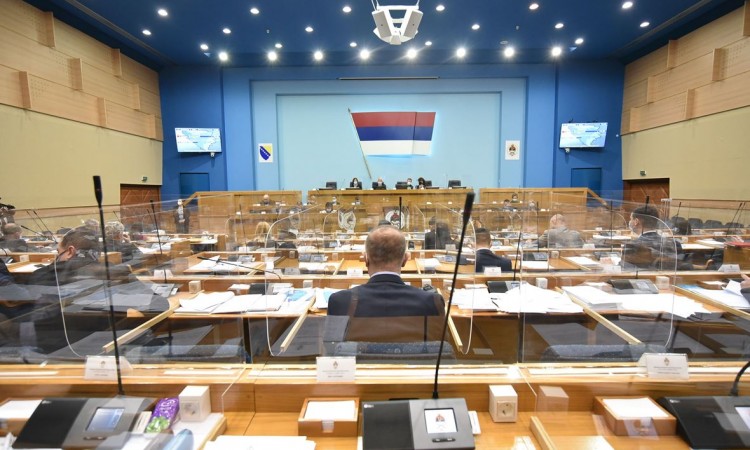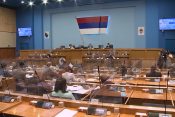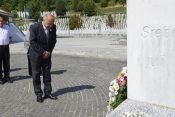
The Ambassadors of the Peace Implementation Council (PIC), the international body overseeing the implementation of Bosnia’s 1995 Dayton Peace Agreement, strongly condemned the “escalation of tensions by some political leaders,” noting that the recent decisions the parliament of BiH’s Republika Srpska (RS) entity made following the ban on genocide denial imposed by the outgoing international administrator “undermine stability and impede effective government.”
The outgoing High Representative tasked with overseeing the civilian aspects of the implementation of the Dayton Agreement in Bosnia, Valentin Inzko, used his special powers last week to introduce amendments to the BiH’s Criminal Code which sanction the glorification of war criminals convicted by final and binding judgments, as well as the denial of genocide, crimes against humanity and war crimes.
While welcomed by Bosniak top officials in the country, Inzko’s move prompted officials from Bosnia’s Serb-majority Republika Srpska entity, who have been denying the 1995 Srebrenica genocide for years, to discuss a “joint response.”
Political leaders in the RS, including those from the opposition, decided on Monday that members of their parties will not participate in the work of BiH institutions “until the issue is resolved.”
On Friday, the RS National Assembly discussed the issue and rejected Inzko’s new law.
Meanwhile, the Serb member of Bosnia’s tripartite Presidency and leader of the ruling party in the Serb-majority RS entity, Milord Dodik, said that the decision represents the ‘last nail in the coffin’ of Bosnia and Herzegovina. He said RS police would prevent state authorities from implementing the decision.
“Rhetoric and actions which undermine the functioning of the state of Bosnia and Herzegovina, including the boycotting of state-level institutions and the blocking of vital decision making, are destabilising and contrary to the Dayton Peace Agreement. Such activity does not serve the interests of the citizens of Bosnia and Herzegovina and impedes European integration and progress on the 14 Key Priorities,” the PIC Steering Board statement said, referring to the priorities the European Commission defined for BiH to focus on in its efforts to achieve EU candidate status.
“Revisionism, glorification of convicted war criminals, and denial of well-documented and established facts about war-time events including genocide is unacceptable. This contradicts the most basic European values and undermines the stability of the country and the welfare and prosperity of BiH’s citizens. The recent amendment is the result of lengthy inaction by domestic political actors, and is applicable to all citizens in BiH,” it said.
The PIC Steering Board called upon BiH authorities to refrain from “destabilising behaviour” and urged all political leaders in the country to “focus on supporting peace, stability and prosperity for the citizens of this country and advance reconciliation, built on mutual recognition, empathy and respect for all victims.”
“The PIC SBA emphasises its continuing support for the authority and mandate of the High Representative and the vital role the High Representative will play until the 5+2 conditions for BiH’s graduation from international supervision are complete,” it said.
The Russian Federation, however, added that it does not agree with this statement.








Kakvo je tvoje mišljenje o ovome?
Budi prvi koji će ostaviti komentar!